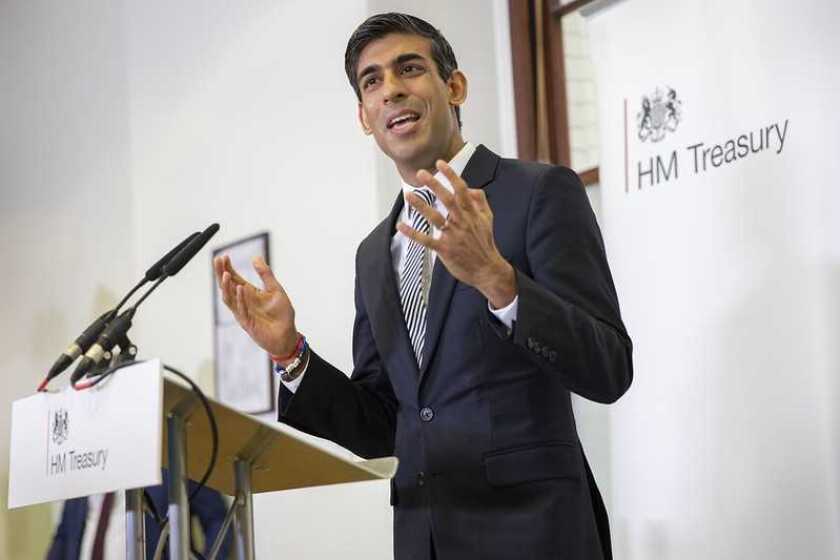It was the first budget since the UK entered the Brexit transition period and the first since PM Boris Johnson was officially elected to office in December. As such, it placed heavy emphasis on the country’s ability to compete economically on the global stage, as well as “levelling up” the national economy.
For the tech industry, the budget provided a strong start. Earlier in the week, Sunak confirmed the budget would include a £6 billion package designed to boost Britain’s digital infrastructure, including a shared rural network to boost nation-wide 4G coverage.
However, in terms of realising the wider ambitions that naturally fall under the remit of the digital and tech industries, leaders from both have been quick to highlight the missing pieces in the puzzle, including talent and business retention, and addressing the skills gap.
Investment in connectivity
While the investments in connectivity would go a long way to address the UK’s digital divide, Steve Thorn, executive director of digital at Civica said it must go further, suggesting a five-step plan to eradicate “digital exclusion”.
His proposals included: scaling up digital inclusion programmes in rural areas; investing in digital infrastructure; identifying who is not using the internet and why; building engaging digital services across different channels; educating and training citizens in the use of digital services.
“When considering the best solutions for getting the nation online, it’s not as simple as introducing better broadband infrastructure or 4G/5G; rather, it has become a social challenge. The mission to eradicate digital exclusion will be complex, but it’s not unachievable. Much needs to be done to address the root causes of this ‘digital divide’,” he said.
Adrian Baschnonga, global lead telecommunications analyst at EY, agreed that “practical challenges” remain in the funding commitment for gigabit broadband.
“Funding commitments for gigabit broadband and the shared rural mobile network are significant developments, which will support the Government’s levelling up ambitions. However, practical challenges still need to addressed, such as extending business rates relief to aid fibre rollout. Meanwhile, 5G’s role in helping to bring better digital connectivity to rural areas could be explored further,” he said.
Skills
Calling for a greater focus on STEM subjects in schools and universities, Stephen Whatling, chairman at BCS, said young people need incentives to pursue non-vocational subjects, especially given the high cost of STEM degrees.
“It’s not just this industry it’s aerospace, power, utilities. We had the apprenticeship levy scheme but it all got quite complicated for businesses so there has to be a much clearer, very easy way to incentivise businesses to employ more apprentices, take them through the graduate route and realise that STEM degrees are expensive – they can last up to five years with a placement.
“We need to incentivise businesses to take these graduates on, the private sector can’t carry that burden alone. It’s too important to the UK economy,” he added.
Business retention
Europe and the US were quick to woo British tech firms overseas in the months following Brexit and the push is expected to continue as the UK’s transition period progresses – a development that will directly impact national competition, skills and jobs.
“We are a great nation in that we have the research capabilities and the universities to lead with AI and we are well placed in the gig economy, but what we need to do is develop these things now and retain them because [start-ups] end up being bought by American and Japanese firms,” said Michael Akinla, senior technical manager for northern Europe at Panduit.
“We can’t put controls on and stop great companies from being sold, but what we can do is encourage them to keep on developing so maybe helping through tax, grants, revenues. We have more freedom now in that respect so maybe we can use that to support start-ups and help them to grow until they are at a stage when they are big enough to be on their own two feet, but are not being bought out by Silicon Valley,” he added.
Digital services tax
Aiming to raise more than £400 million a year the DST will take effect from 1 April, in part addressing the base erosion and profit shifting (BEPS) practices of international tech giants.
The likes of Facebook, Amazon and Google will face a 2% tax on their online revenues, as will all tech firms with revenues in excess of £500 million, from which more than £25 million is generated by British users.
Chris Sanger, EY’s head of tax policy, said: “The Chancellor chose to proceed with the new Digital Services Tax that was invented under his predecessor’s predecessor. There has been much speculation that the Chancellor might defer the introduction, having seen the debate between the US and France. Following the threat of tariffs, the French government agreed to defer collection DST on this year’s revenue until 2021.
“Despite the government’s own scorecard showing the advancing of the liability due to the way that the government accounts for tax, the Chancellor has followed his French counterpart by deferring payment into 2021. More widely, despite the changes since the tax was introduced, it still seems that the Exchequer believes it will raise £440 million per year,” he added.





